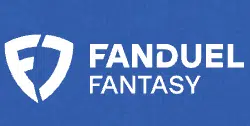Iowa Daily Fantasy Sports
Iowa daily fantasy sports sites are legal, licensed, and open to players 21 or older. Prominent fantasy sports operators like FanDuel and DraftKings blocked access to Iowa residents for years, but they are now open for business in the Hawkeye State.
The Iowa Racing and Gaming Commission regulates daily fantasy sports, issues licenses to operators, and adopts additional rules as needed to protect consumers.
Iowa regulates daily fantasy sports with a heavy hand, which has limited the number of operators willing to apply for licenses. However, the upside for sports fans is that they can play daily fantasy online with confidence that they’ll be treated fairly and receive prompt payouts.
Iowa Daily Fantasy Sports Sites
Only two fantasy sports operators have received Iowa DFS licenses to date, but both are industry leaders and boast the nation’s largest real-money contests:
| Recommended Iowa Fantasy Sites |
|---|
| FanDuel Daily Fantasy Sports Iowa |
| DraftKings Daily Fantasy Sports Iowa |
FanDuel and DraftKings are the nation’s two largest daily fantasy sites and boast the industry’s largest DFS prize pools. Both operators also offer legal online sports betting in Iowa through a single customer account at each.
Licensed Iowa fantasy sports sites undergo a demanding application process when applying for licenses, much of it geared toward verifying that every operator can protect the integrity of DFS contests and treat customers fairly.
Fans can visit the Iowa Racing and Gaming Commission’s website to operators’ daily fantasy licenses.
Iowa Fantasy Sports Law
and regulate daily fantasy sports in Iowa.
State law places the Iowa Racing & Gaming Commission () in charge of overseeing sports betting and daily fantasy sports and issuing licenses. DFS operators must apply for licenses from the IRGC and restrict anyone under 21 from participating.
In addition, the law requires Iowa fantasy apps and websites to implement reasonable standards for safety and fairness.
How Daily Fantasy Sports in Iowa Was Legalized
Iowa prohibited daily fantasy sports for longer than most other states, remaining one of the country’s last holdouts. At one point, it was estimated that 1 in 10 Iowans participated in real money fantasy leagues before doing so was legal.
Iowa’s longstanding fantasy sports prohibition wasn’t the result of widespread opposition on moral grounds or competing stakeholder interests. Instead, it was a matter of existing law; Iowa’s criminal code relied on a definition of illegal gambling that authorities interpreted as applicable to daily fantasy sports.
So, unlike some states, Iowa needed new legislation for fantasy sports sites to enter the market. Fantasy sports trade associations lobbied Iowa lawmakers for years to pass a law legalizing DFS, and eventually, lawmakers came around to their point of view.
Plus, with so many people already participating in daily fantasy sports, it made more sense to formally legalize the activity, tax it, and implement consumer protection measures.
Iowa lawmakers finally acted in April 2019 by introducing to legalize daily fantasy contests and sports betting. Governor Reynolds signed the bill that May, DraftKings launched in October, and FanDuel launched in November.
The Iowa daily fantasy market got off to a rough start due to that delayed the launch of the state’s first operators. Those issues resulted in the unexpected outcome of Iowa’s first online sportsbooks launching before daily fantasy could get off the ground.
FanDuel and DraftKings made it through the licensing process, but all other operators have shied away from the market since.
The Iowa Racing and Gaming Commission could simplify the licensing process to promote a more competitive DFS market and give players more choices. However, the advantage of the current system is that it provides high levels of consumer protection.


